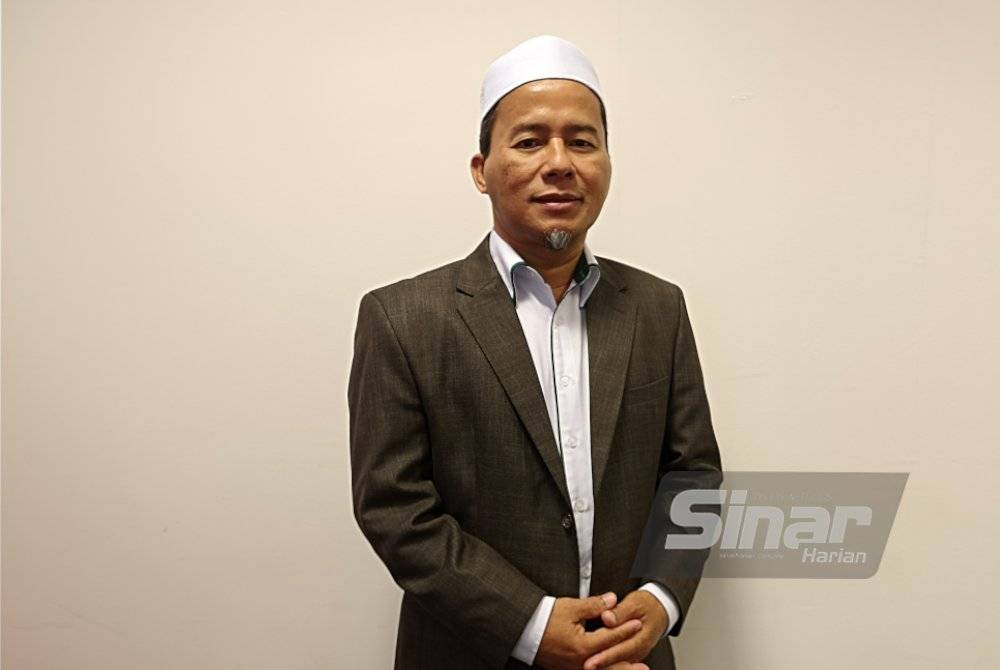An honour to die in Mecca and Madinah during haj, umrah - FT deputy mufti

SHAH ALAM - To die in the holy land of Mecca and Madinah is a sign of honorable death especially while performing haj and umrah.
This year alone, 500 pilgrims in Mecca have died from heatstroke.
This highlighted the importance of raising awareness about the handling of pilgrim deaths.
Federal Territories deputy mufti Sahibus Samahah Jamali Mohd Adnan explained the procedures in detail, noting that it was not recommended to repatriate the bodies to Malaysia or their homelands.
Jamali reminded that every living being will inevitably face death, whether sooner or later and wherever they were, as determined by Allah SWT.
He also quoted a Quranic verse which says: "To every people is a term appointed: when their term is reached, not an hour can they cause delay, nor (an hour) can they advance (it in anticipation)," (Surah Al-A’raf, 34).
He also said that the Quran has stated that no one knows in which land they will die in, which could be found in Surah Luqman.
He pointed out that the number of deaths that occur during the haj season this year has been higher than usual.
"This might be because many Muslims gather in one place at the same time, which increases the likelihood of a higher death toll compared to other times, caused by factors such as the heatwave, among others.
"Death in the holy land is a privilege, especially for those performing haj and umrah," he said.
He quoted Imam al-Nawawi to highlight the specialty of the land, who said that those who have achieved a righteous haj would not only be absolved of all their sins but would also be rewarded with paradise.
"The Prophet SAW said: "Whoever performs haj and does not speak foul or commit sinful acts will return as free of sins as the day his mother gave birth to him, as narrated by al-Bukhari," Jamali said.
He explained that there were three types of martyrdom in Islam which were martyrdom in the world and the hereafter for those who were killed in battles against infidels; martyrdom in the hereafter but not in the world; and martyrdom of the world but not the hereafter, such as those who died in battles against infidels but were killed while fleeing or for other reasons.
"The latest category would be followed with regular burial procedures, where it usually also includes those who die from plague, stomach illness, drowning and the like.
"The Prophet SAW said: "Five are regarded as martyrs: They are those who die because of plague, abdominal disease, drowning or a falling building and those who die in the way of Allah," he said.
Addressing pilgrims who died during haj, Jamali quoted Imam al-Bukhari's narration, saying that those who passed away during haj could be considered martyrs in the way of Allah, not through battle but through seeking knowledge.
This interpretation was also supported by Syrian Islamic scholar Dr Wahbah Zuhaili, who referenced the Hanbali school of thought.
Jamali also outlined procedures for handling pilgrims who passed away during haj or umrah in the holy land.
"If they are in the state of Ihram, the body should be washed without using fragrances like camphor and the head and face of male bodies should remain uncovered.
"For those not in Ihram, normal washing, prayer and burial procedures apply.
"Managing the body is a collective obligation (fard kifayah), requiring involved agencies or parties to ensure proper handling," he said.
Jamali elaborated on the duty to repatriate bodies for burial in Malaysia or their homelands, highlighting varying opinions among Islamic scholars.
"According to the Maliki school, it's permissible as long as it preserves the body's dignity and avoids harm.
"The Hanafi school considers it undesirable (makruh)," he said.
He added that it was recommended for pilgrims who passed away there be buried there due to the advantages and special status of dying in the holy land.
"Even Saidina Umar al-Khattab once prayed to die there: "O Allah, grant me martyrdom in Your cause and let my death be in the city of Your Messenger (Madinah)," as narrated by al-Bukhari.
"There is also a hadith where the Prophet SAW said: "Whoever dies in one of the holy lands will be resurrected in a state of security on the Day of Judgement," as narrated in the book Mishkat al-Masabih.
"Imam al-Nawawi mentioned that it is recommended to pray to Allah SWT to be granted death in a noble land," the mufti said.











